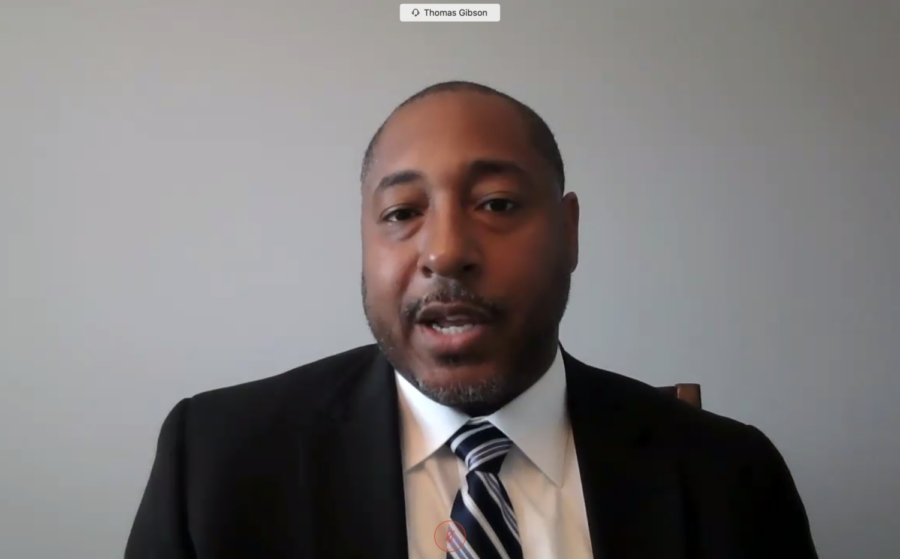Final candidate for vice president of Student Affairs prioritizes student success
The final candidate, Thomas Gibson, vice president for Student Affairs and vice provost at Bowling Green State University, prioritized student success in a virtual open forum.
July 9, 2020
The interview process for Iowa State’s next senior vice president of Student Affairs has come to an end Thursday.
The final candidate, Thomas Gibson, vice president for Student Affairs and vice provost at Bowling Green State University, prioritized student success in a virtual open forum.
“Everything that we do, including our programs and services, must measurably support student learning, student engagement, student retention, student persistence toward a degree and career readiness as well as student well-being,” Gibson said.
Gibson said he believes a university’s data point is the key to helping students achieve success and goals.
“What’s important is that we know our key institutional data points relative to student success, and relevant success metrics data is critical to igniting innovation and promoting student success,” Gibson said. “Knowing your institution’s key data points you begin to know more about your students, both undergraduate and graduate, and know how to best support them at the institution.”
Gibson said he will work to create a culture of shared purpose within the division of Student Affairs because supporting student success should be everyone’s responsibility.
“I will seek to develop a culture full of high expectations for student involvement and engagement with the institution,” Gibson said. “I will strive to create an environment that celebrates diversity, equity and inclusion and respect for all students.”
Gibson said his first strategy as Iowa State’s new senior vice president of Student Affairs is to host a visioning session with colleagues and come up with strategic goals for the next five years.
“The goal should be reflective of integrated Student Affairs and Academic Affairs learning outcomes,” Gibson said. “The goal should also be inclusive of the institutions as well as the Board of Regents strategic priorities. We should establish a Student Success Council. This group should be co-chaired by a colleague from Academic Affairs. The council will work to identify and remove barriers to Student Success.”
Gibson said a biannual student round table is an ideal way to understand how students are experiencing the institution. It can also encourage and nurture innovation in the delivery of student programs and services.
“We should partner with student athletics to encourage school pride and student-athletes interactions with their peers,” Gibson said. “One of the things I’ve learned is that student-athletes largely tend to study with each other, eat with each other, reside in the same residence halls thus not providing opportunities for interaction with a broader base of the student body.”
Gibson said Student Affairs requires the collective effort, active participation and commitment of all Student Affairs stakeholders. Vision must be rooted in the values of the institution as well as the division of Student Affairs.
“All process must ensure that we collaborate,” Gibson said. “We must partner with members and colleagues from across the institution as we reflect on our vision but yet look forward. Student Affairs stakeholders must be aware of the institution’s strategic priorities and understand their role for helping to advance to the accomplishment of the institution and our students.”

















